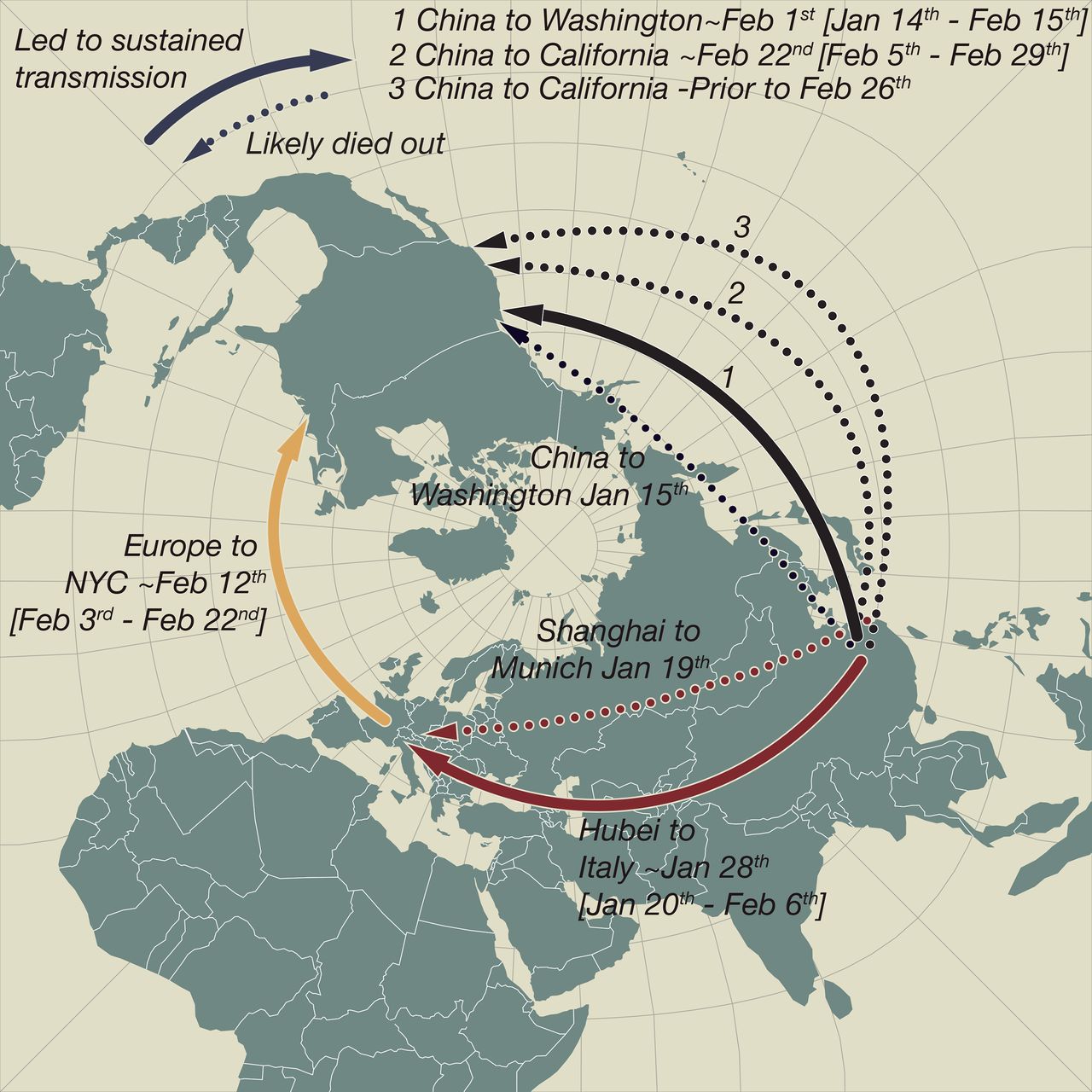Accurate understanding of the global spread of emerging viruses is critically important for public health responses and for anticipating and preventing future outbreaks. In a recent study published in Science, CViSB investigators and colleagues investigate when, where, and how the earliest sustained SARS-CoV-2 transmission networks became established in Europe and North America. The results suggest that rapid early interventions successfully prevented early introductions of the virus into Germany and the US from taking hold. Other, later introductions of the virus from China to both Italy and to Washington State founded the earliest sustained European and North America transmission networks. The analysis demonstrates the effectiveness of public health measures in preventing onward transmission and show that intensive testing and contact tracing could have prevented SARS-CoV-2 from becoming established.
Read the complete Science article here.
